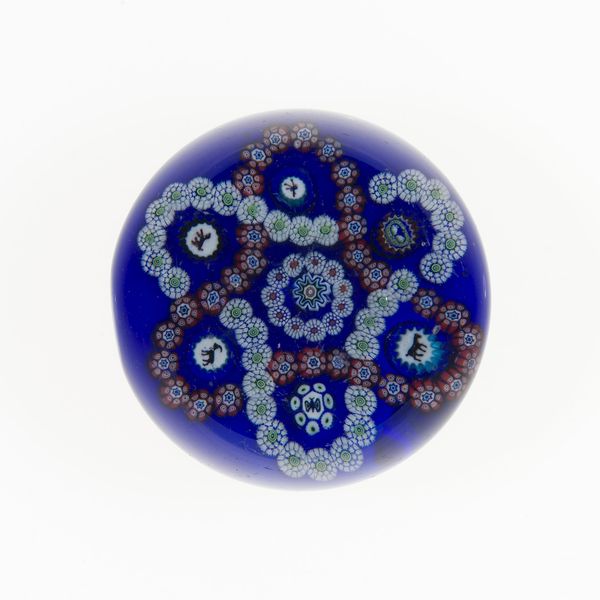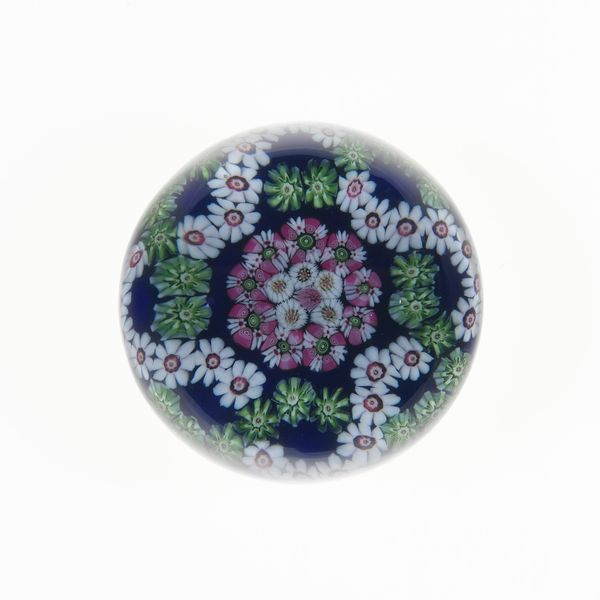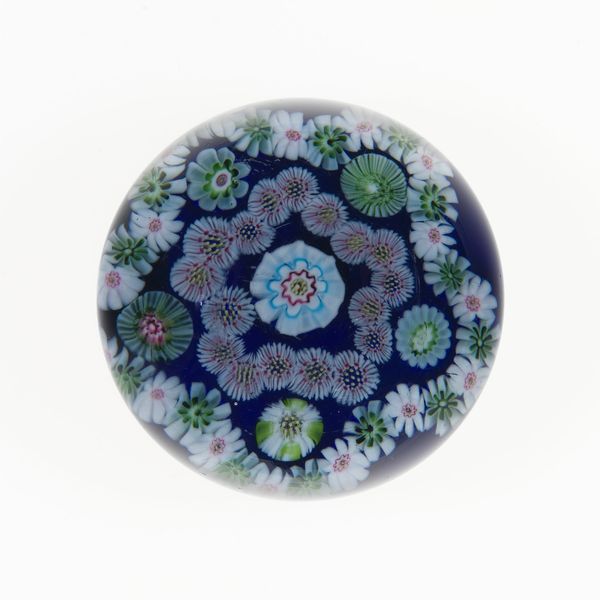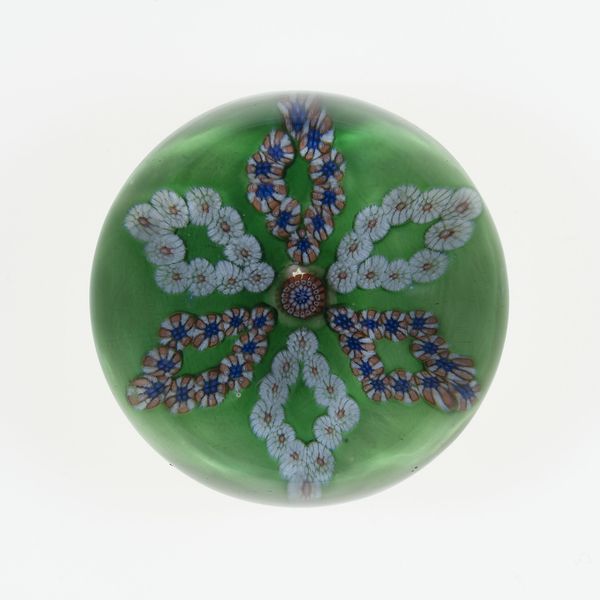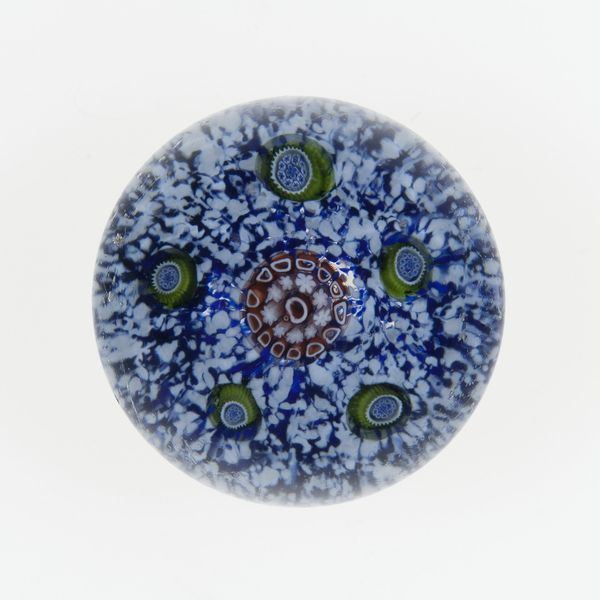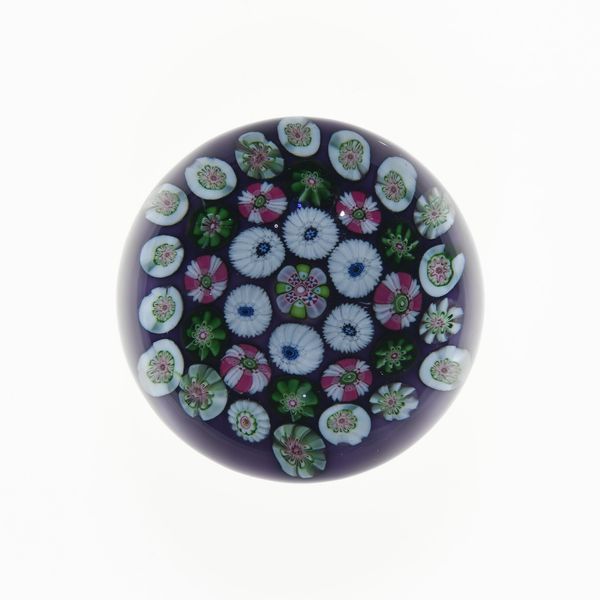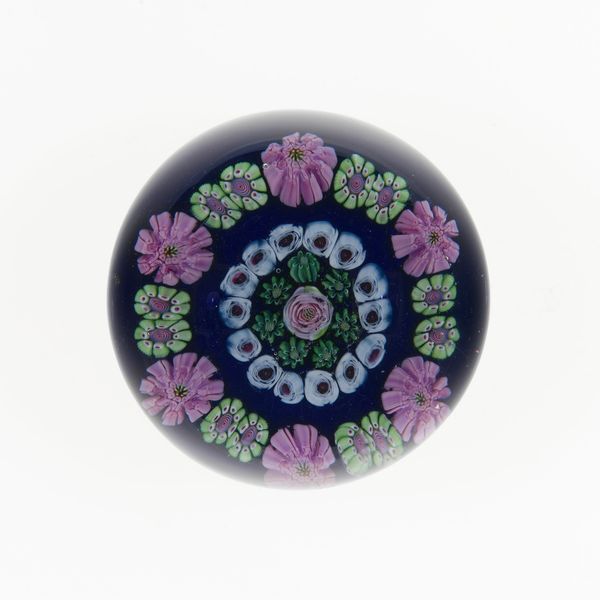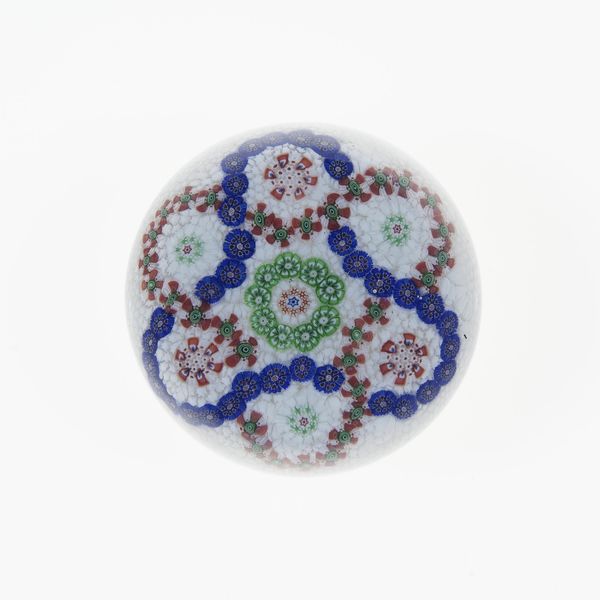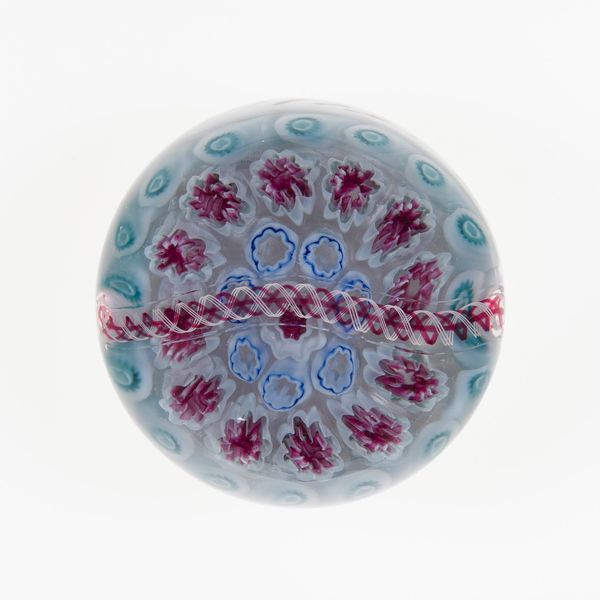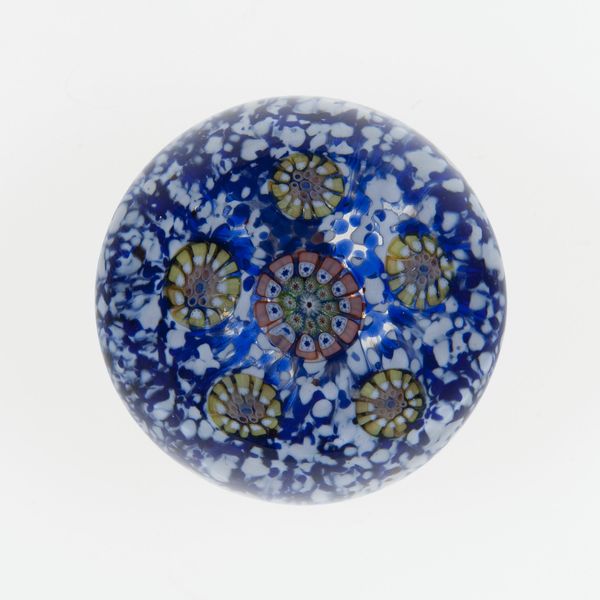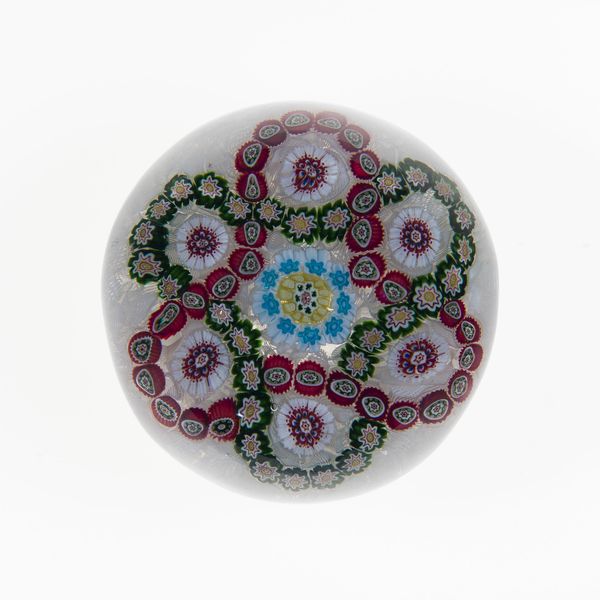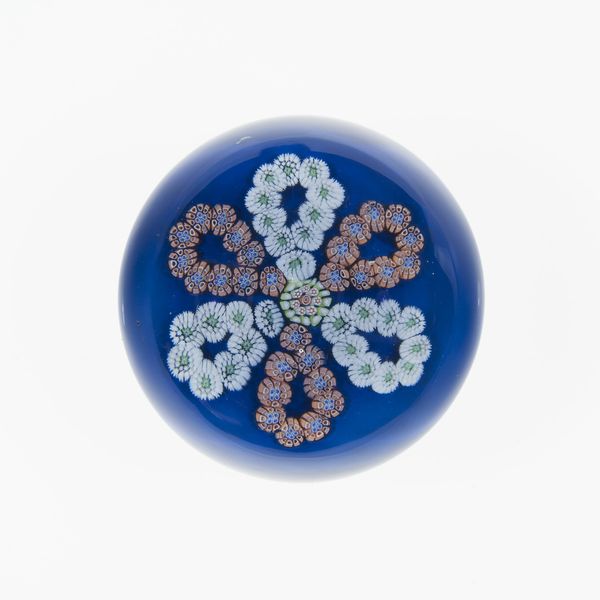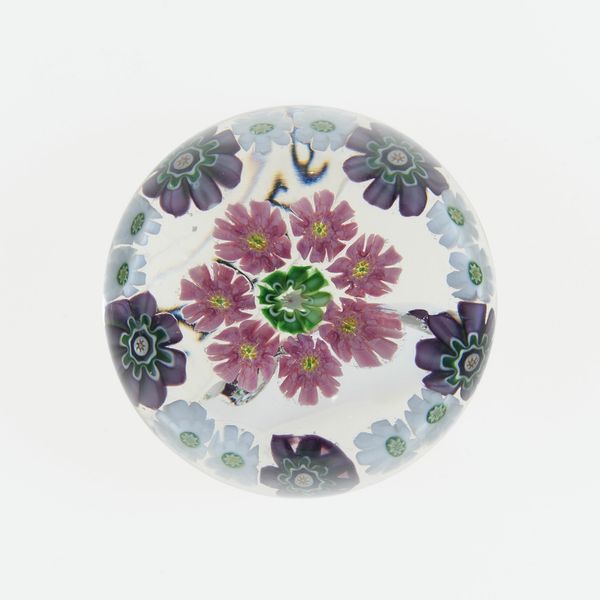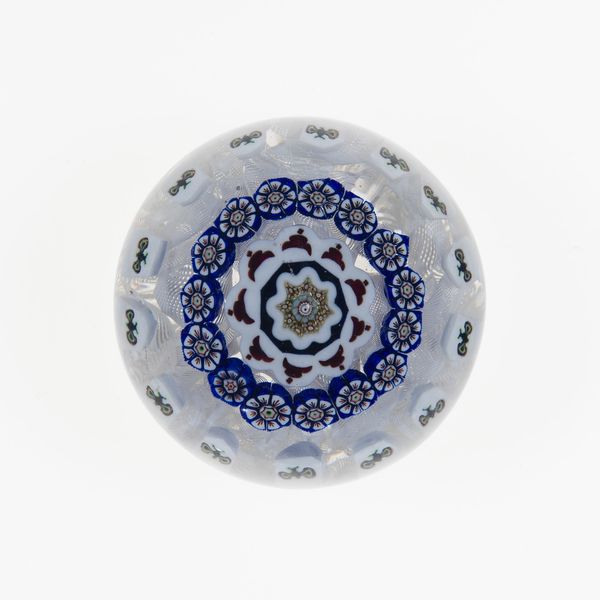
glass, sculpture
#
glass
#
geometric
#
sculpture
#
france
#
decorative-art
Dimensions: Diam. 7.3 cm (2 7/8 in.)
Copyright: Public Domain
Curator: Let’s discuss this marvelous piece from the Art Institute of Chicago, a glass paperweight created by the Clichy Glasshouse in France, likely sometime between 1845 and 1860. Editor: Ah, yes! First impression—utterly captivating. The deep blue just swallows you, then those little bursts of floral fireworks… It feels like holding a miniature, perfectly preserved cosmos in your hand. Curator: Precisely. Clichy glass, especially these paperweights, were luxury items reflecting 19th-century industrial advancements. We're seeing a mastery of glassmaking techniques; each delicate, millefiori cane carefully constructed, then fused within the clear glass dome. It wasn’t just about artistry; it was labor. Editor: The detail is insane! I am immediately curious about the labor and what was required. Imagine the focused, repetitive actions… It is like meditation or prayer, each dot and swirl forming an image from a deeper source. There's such an enchanting quality to these paperweights; they are a symbol of a particular kind of calm. Curator: And think about the social context, right? Mass production allowed for intricate decorative objects, like this paperweight, to enter bourgeois homes as tokens of taste and prosperity. There's a certain democratisation happening here, too, regarding artistic consumption. Editor: Still, though… looking at it, knowing it’s a decorative piece feels a bit too functional for how delicate it seems. Like assigning it to a daily grind. Maybe that is where the tension between labor and craft emerges. Do you think people back then valued the process of creating such a marvel? Or simply that having it signaled a lifestyle choice, one of prosperity, of good taste? Curator: A fascinating tension to consider, yes. I think what stands out the most to me is it presents a democratization of production, it’s meant to be accessible. What ultimately resonates most about its craft? Editor: Definitely the fact it seems to freeze an instant… Or perhaps more precisely: many instants, a confluence of movements now trapped still under glass. Anyway, what I see isn't just decor, it’s art in a portable daydream.
Comments
No comments
Be the first to comment and join the conversation on the ultimate creative platform.
